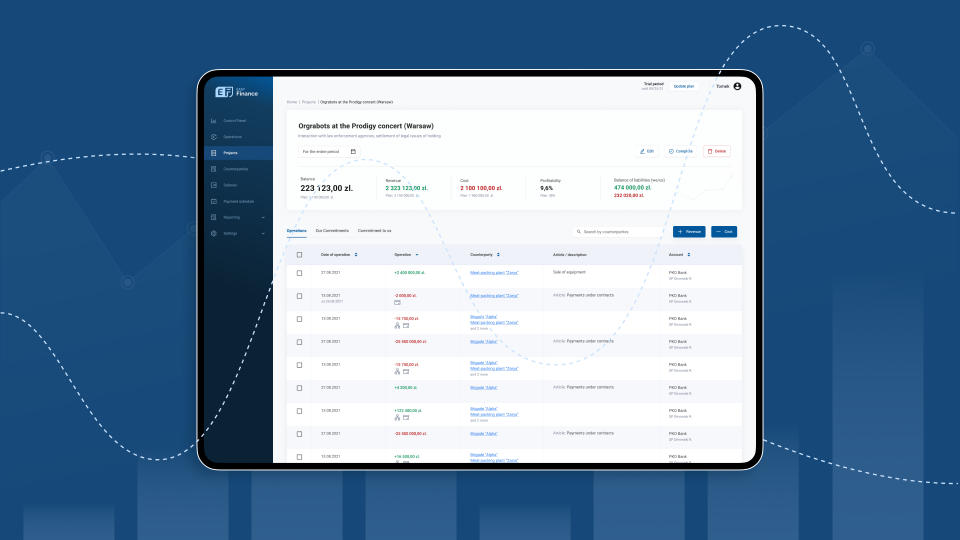Nowadays, a huge number of businesses in the field of finance, large and small, pay great attention to the increased use of technologies, because of the growing demands of the audience. Besides that, there is a growing need for complying with the technological standards of the market, and this task may be quite challenging.
This need was especially acute during the consequences of the coronavirus pandemic, so technological progress has become more of a necessity than a tribute to development. Since then, many routine processes have become significantly modernized, improved, and automated, and technology has become our familiar reality. Fortunately, DevOps consulting is able to address many needs at once.
DevOps Transformation as a Guarantee of Stability in Technological Progress
In terms of efficiency and service delivery, this was a game-changer for the entire finance industry, as the progress and necessary technological innovations really mattered and helped to improve many processes. It also helped to modernize the whole area.
Since now the need for innovation, constant compliance with technological changes, and progress is an integral part of the work of businesses and a guarantee of survival. Therefore, the fact that many businesses have realized this and begun to switch completely to DevOps practices is one to call a turning point in the development of the financial sector. This is both the conditions for progress and the need for the technologies with which we interact with you to penetrate deeper and deeper into various areas of business and stay there more and more firmly. After that, in the future, we will probably deal with more advanced use of DevOps and with a better understanding of it in various aspects.
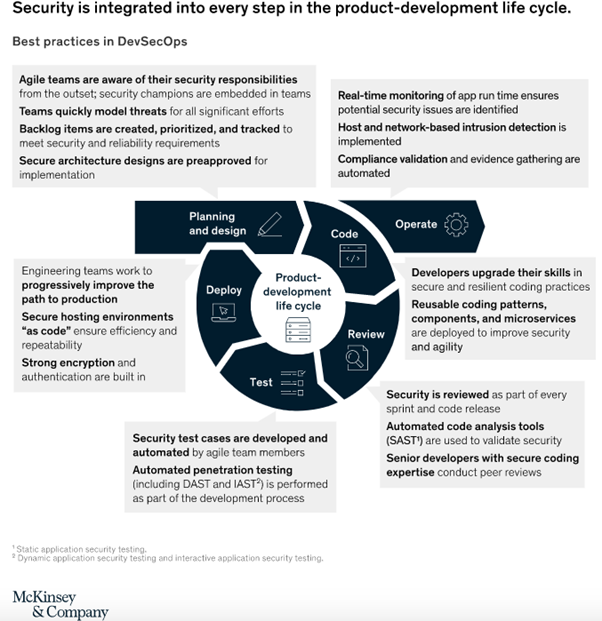
The aspect of security and the product-development life cycle by McKinsey&Company
In this article, we will talk about the relationship between fintech and DevOps, the role of outsourcing companies in this process, and how DevOps services became popular in the sphere of fintech.
What Is DevOps, and How Does It Work
DevOps is often referred to as a more holistic approach to the software development lifecycle. In a nutshell, this practice is a set of techniques that is aimed at enhancing the company’s ability to deliver products faster. DevOps is also often referred to as very helpful in terms of quality.
In general, we can describe DevOps transformation as a transition to a method that is closer to Agile. This translates into better communication between development and operations teams, improvement of their work, and many other essential functions.
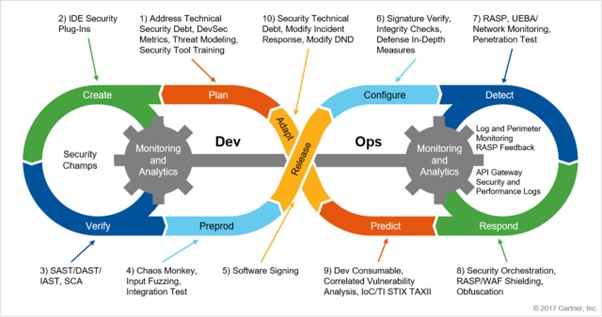
Integrating security into DevOps
Companies are automating more and more processes, thus avoiding various mistakes, working more efficiently, and achieving greater customer satisfaction. The development culture should be aligned with such DevOps principles as collaboration, decision-making, and automation.
The Role of Communication and Collaboration in DevOps Practices
Another very important aspect of DevOps transformation is communication. For DevOps, unlike developers, it is impossible not to pay constant attention to collaboration and negotiations with various parts of the team. Because DevOps is aimed at removing barriers between teams, seamless cooperation is a must.
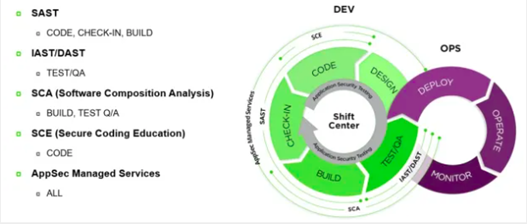
Why security needs to be integral to DevOps
Another goal of DevOps is to provide transparency and visibility to different teams so the responsibility is shared between different members. Also, teams collaborate in a faster, more reliable way.
How to integrate security into DevOps
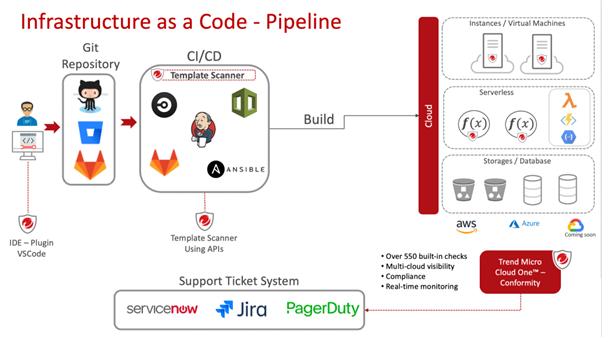
The State of DevOps in the Finance World
DevOps is an irreplaceable practice for the entire fintech field already because of the efficiency it gives, becoming a core part of modern fintech software development and digital transformation. At the moment, the demand for the DevOps approach is only growing, as companies from various fields around the world show very high satisfaction.
Since DevOps addresses a wide range of needs of different financial companies, in the future, it is likely that the practices will be even more developed to meet the businesses’ demands in an even more tailored approach. The satisfaction with DevOps results in companies turning to these practices en masse.
So Why Do Fintech Startups and Companies Need DevOps?
The fintech sphere includes a huge variety of processes. All of these processes need constant assistance to increase stability and efficiency. This is where DevOps practices can come to the rescue.
What makes DevOps especially useful for fintech is its innovativeness and reliability. No wonder he is so popular. It is possible that in the future we will need even more of these methods that provide so many benefits and so significantly increase the efficiency of companies.
However, there is a clear difference in implementing DevOps practices in fintech startups and fintech as an industry. Since fintech is conservative in this matter and needs balance between flexibility and security, DevOps practices are difficult to implement in this field.
For fintech startups, however, it is easier to use DevOps. The same applies to the tools that need to be chosen as they are different for these two fields. Startups are way more flexible by nature and DevOps practices fit more organically into it.

What Are the Benefits of Using DevOps in Fintech?
In addition to IT operations, the DevOps approach allows you to significantly optimize virtually all company operations. This way you will have a more holistic view of the changes and you will be able to take advantage of the quality of the various workflows.
In addition, a separate bonus that DevOps gives the company in the form of better collaboration and transparency is also reflected in the work. By improving collaboration when moving to a DevOps approach, you are also helping your company's successful collaborative work.
Other benefits of DevOps transformation for fintech companies include:
- Improving the quality of products and services;
- Reducing the number of errors;
- Better team collaboration;
- Fast recovery time.
At the moment, the majority of companies are satisfied with how DevOps transformation affects their work. The benefits belong to different areas, but in the age of technological progress, there are no insignificant details when it comes to working efficiency.
So, when it comes to results, the DevOps strategy makes it possible to achieve much smoother work processes and streamline them in a much better way. Thus, the production infrastructure becomes much more stable. DevOps strategy can streamline the entire development cycle so it becomes smooth, efficient, and well-tuned, and you can also see this improvement in better code quality.
So, in terms of work efficiency, DevOps is essential in ensuring that routine operations are stable and automated, operational performance is sufficiently optimized, and everything works faster and better.
In fintech, where many routine operations require constant predictability, such technical assistance is key for success. The current trend of companies increasingly turning to DevOps only increases the need for other businesses to comply with this.

DevOps in the Finance World: The Best Practices
There are certain DevOps best practices, that include automation, configuration management, and infrastructure as code, that will help your company get the most out of DevOps strategies and ensure higher efficiency and security of your work. Information on these best practices will allow you to use DevOps strategies effectively to stay competitive, and, at the same time, avoid serious mistakes.
Some of he best practices for DevOps include:
- CI/CD for finance/financial institutions.
- Continuous testing (CT).
- DevSecOps.
- Infrastructure as code (IaC).
and more. CI, or continuous integration, allows developers to frequently integrate their code into the main branch and perform automated tests. This also helps to troubleshoot issues early on. Continuous testing (CT) includes introducing automated testing at different stages of the software development lifecycle and ensures the product quality.
As for DevSecOps, it stands for development, security, and operations, and infuses security best practices at every stage of the software development lifecycle. And, finally, Infrastructure as code is the automated provisioning and management of infrastructure.
Since financial institutions have always preferred more traditional ways of managing the infrastructure of their projects, stability is a key component to success in this aspect. This is easy enough to achieve with the help of DevOps practices.
1.CI/CD for finance and financial institutions
By this we mean CI with the fail-fast, fix-fast approach. This best practice allows for the quick recognition of what can go wrong on any stage of the Continuous Integration (CI) process. However, all of the issues still need to be resolved fast.
2.Continuous Testing (CT)
For ensuring success, CT should be integrated on the CI stage. In this best practice, the test coverage should be as high as possible, and include integrational testing, functional unit testing, and M to M testing.
3.DevSecOps
It can be said that DevSecOps takes part in the entire life cycle of product development. It is present in code analytics for ensuring protection and detecting weaknesses, and in Penetration testing, that is performed directly after deployment.
And we check directly our already deployed application. Also, in fintech, DevSecOps at least indirectly relates to compliance with various standardizations and specifications. That is, there are different aspects with regards to security.
As for fintech, that is, it must generally ensure compliance with these standards, it’s just that some things of fintech are impossible.

4.The approach to Getopts
This best practice allows to describe fully not only the infrastructure itself, but also the state of the application and the processes as the processes of deployment, and use the get repository itself as the only source of truth.
This allows us to make the process of assembling the management of various parts of our deployment system more controlled, but we know exactly what we have deployed every moment of time, and in this way we eliminate drift, including between our environments, that is, dev stage, etc.
5.Monitoring and observability
Monitoring is quite a narrow field which implies you need to monitor the parameters of our application in real time, how it functions, what key metrics there are, how it is loaded, not loaded.
Observability expands this concept and at least includes the collection of extended debugging information from the application, the collection of extended metrics and the collection of traces if necessary.
Generally speaking, monitoring has developed into observability, a more complex concept, which, in addition to traditional monitoring, understands additional things.
6.Best practices in general
The deployment environment should ideally be represented by a system of container orchestration and an application should ideally be containerized. In general, we are talking about Kubernetes. The main reason for it is that it allows for faster and more flexible deployment of the application, perform updates, perform different types of deployment such asCanary deployment, Blu Green deployment, etc. This step is also essential for a successful outcome.

As previously, there were approaches that involved manual deployment with a server and a VM, nowadays, this is rather an outdated practice. Nowadays, Kubernetes is a must-have tool that ensures the effectiveness of your project. Among other things, Kubernetes allows for solving such issues in deployment as those related to the processes of continuous delivery and continuous deployment.
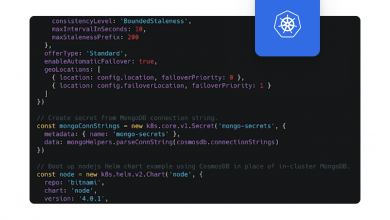
Adopting DevOps the Right Way
In order to get the most out of these practices, they need to be implemented properly. Since DevOps is responsible and time-consuming, it is important to determine all the necessary steps. Don't be afraid to follow this process, as there are currently paths that will allow you to successfully transition to DevOps practices, and it does not require you to be an expert in this area. This path is practice-proven and allows companies to safely, quickly, and reliably move to DevOps strategies and still get the most out of it.
Follow the proven methods, be guided by the opinions of experts, and learn from the existing paths. Luckily, as the trend to adopt DevOps practices is only gaining momentum, there is a lot of information that will definitely help you expand your knowledge of the field.
DevOps for Fintech: Should I Build a DevOps Team or Find a DevOps Partner?
This dilemma is often faced by organizations as using DevOps practices requires building a professional DevOps team. However, there are cases in which it is advisable to hire a team or to choose DevOps outsourcing.
The difference between the two approaches has a lot to do with resource costs. You need to understand what you have in case of choosing an in-house team or outsourcing DevOps tasks, what goals you set for yourself, and which choice will result in fewer risks.
Despite the statistics of satisfaction with the outsourcing method, there are cases when such a solution is not suitable for a company. Here you need to carefully consider the pros and cons, evaluate available resources such as time and effort, and understand how many people you want to involve in the processes.
When to Choose Your In-House DevOps Team?
Some of the main reasons for an in-house DevOps team are having a large staff, enough resources to engage in the process of employee training, and prioritizing delivery mechanics. However, you need to be aware of the amount of time and energy this approach requires.
When to Choose DevOps Outsourcing?
When it comes to DevOps outsourcing, is quite a popular practice among companies mainly because more than 70% of businesses are completely satisfied with the results of outsourcing cooperation. Also, this approach may be extremely helpful for those willing to cut costs.
Some of the reasons to choose DevOps outsourcing include the desire to find a skilled team to perform all operations smoothly, the necessity for shorter development cycles, the aim to avoid staff rotation, and so on. Consider all the pros and cons of this method if you want to outsource DevOps practices for a more tailored approach.

The type of DevOps practices you need depends on the type of organization you have. If a particular practice is beneficial to you, choose it based on the goals of your organization. As a rule, in startups, the selection process is easier.
If you need a specific choice, choose based on personal needs. In this matter, starting from generally accepted or theoretically advantageous options will not help.
Final Thoughts
DevOps addresses a range of essential needs of fintech companies. Besides that, it provides businesses with a set of additional benefits that are available with the help of the innovative holistic approach of this strategy.
For those areas where professionals are faced with complex and important processes, this is an irreplaceable practice. It is necessary to remember that in complex areas, such as fintech, there are no minor details. Learn more about DevOps practices, and you will be able successfully to implement them in your work.
Adopting a DevOps Strategy in 2023
In 2023, most companies of various types have already decided whether they need DevOps practice in their work. The main question is the type of practice and whether it suits your business. Accordingly, the result will change. Choose what is beneficial for you and set goals in choosing a methodology wisely.
As for the main benefits of DevOps, they are widely known and well-described. They include:
- Better release cadence with top DevOps teams deploying new code 208 times more frequently than WHOM.
- DevOps allow for faster deployments and 49% of teams using DevOps report faster time to market for new applications.
- Better reliability. Mature adopters have a 7X lower rate of failure.
